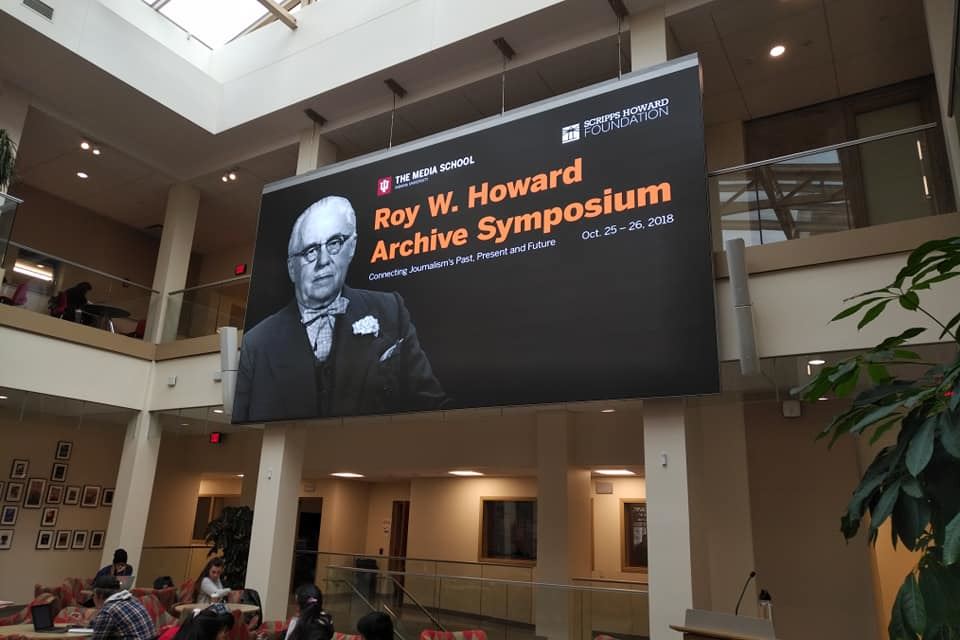By Gerry Lanosga, Indiana University
Scholars from around the country and even as far away as Germany came to Indiana University’s Media School in October for a symposium to mark the launch of IU’s new digital Roy W. Howard Archive.
Howard was an influential journalist who rose to run the United Press and the Scripps-Howard newspaper chain during the first half of the twentieth century.
 IU has been home to an extensive collection of his papers since 1983, when his family donated them to the university. Last year, the family and the Scripps Howard Foundation provided funding to make the collection even more accessible. The grant allowed The Media School to hire a team to catalog and digitize more than 14,000 letters, photos, business records and other items in the archive.
IU has been home to an extensive collection of his papers since 1983, when his family donated them to the university. Last year, the family and the Scripps Howard Foundation provided funding to make the collection even more accessible. The grant allowed The Media School to hire a team to catalog and digitize more than 14,000 letters, photos, business records and other items in the archive.
The materials are now online in a free, searchable archive that covers Howard’s life and career from 1892 to 1960.
In the more than three decades before the collection was digitized, a number of historians visited IU to work in the physical archive, and several of those scholars returned to Bloomington to participate in the symposium. They included Gene Allen of Ryerson University, who studies the history of news services such as United Press, and Kirsten Bönker of Bielefeld University in Germany, who used the Howard materials in her studies of Cold War history.
The Howard archive contains correspondence between the publisher and numerous prominent figures, including U.S. presidents such as Theodore Roosevelt, FBI Director J. Edgar Hoover, and Philippine President Manuel Quezon. The enhanced searchability of the online archive opens up new horizons for researchers, who can now run keyword searches and discover specific documents in a way that wasn’t possible before. That advantage of digital archives was among the issues discussed by a panel of archivists during the symposium, and attendees also heard from scholars doing preliminary research in the new digital collection. Melony Shemberger from Murray State University (editor of the AJHA Intelligencer), for instance, spoke about her discovery of correspondence from Roy Howard in 1914 discussing a new strategy for getting news of World War I home to readers in the United States.
The goal of the Howard family in funding the digitization project was to give Roy Howard’s papers greater visibility. To that end, the archive is available to the public as well as scholars.
Journalist and author James Neff opened the symposium with a keynote talk focused on the value of archives for journalists. Neff, deputy managing editor of Philadelphia Media Network, has written five nonfiction books based to varying degrees on archival research.
The Roy W. Howard archive can be accessed for free at this link: http://mediaschool.indiana.edu/royhowardarchive/

